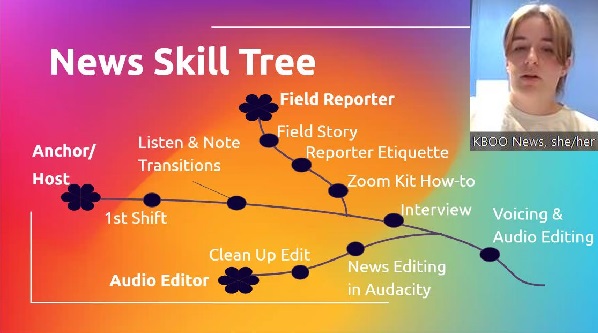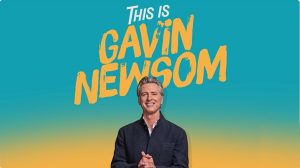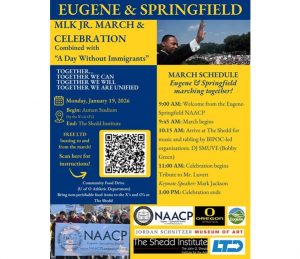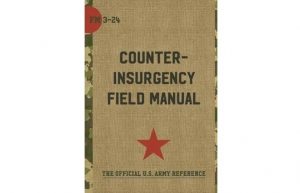Community radio stations invite you to join ‘learning, training’ newsrooms
8 min read
Community radio stations invite you to learn and train in a local newsroom. On Aug. 16:
Chali Pittman (WORT, Madison): I’m Chali Pittman. We are a community radio station in Madison, Wisconsin, the state capital, and we have a newsroom. I know newsrooms look different for different radio stations, but I really think if you’re thinking about it, it’s important to do, and there are ways to start small.
[00:00:25] WORT is a training ground for future journalists and thoughtful civilians, too. I really try to take an approach that this is a news training school, right? This is where you put those skills to the test, and you actually learn that things aren’t black and white, and you’re presented with difficult situations sometimes.
[00:00:41] I would say, the most important thing is a producer to manage whatever news you are doing. The way we structure it at WORT, I’m the news talk and public affairs director. But more to the reasons of why you should establish a newsroom is that it’s an opportunity to address news deserts in your community.
[00:01:01] We have some local media in Madison. We’re a mid-sized city. We have an alt-weekly and we have papers of record—they provide the news as it happens, right? But maybe we take a slightly different perspective in the sourcing of our story, who we talk with for that story, what stories we choose to elevate, what we deem is important.
[00:01:22] So no one owns a story, right? Multiple outlets can do the same story. Those stories are going to look different depending on who’s doing them and the contacts and the sourcing and the comparisons that they make.
[00:01:32] And your goal is to uplift the voices of the people who are least served. A key to community reporting is that you are an outlet that is known for presenting information from on the ground, and in that sense, as you continue to do that, I think trust in your institution will rise, right?
[00:01:57] Kathleen Murray (WSLR, Sarasota): We are WSLR, which is a low-power radio station that broadcasts a signal out of Sarasota, Florida, which is on the gulf side of the state. And then we have Fogartyville Community Media and Arts Center, a performance space, primarily. And the two definitely complement each other and give us opportunities for cross-promotion.
[00:02:19] I’d like to say that, yeah, our mission of ‘Your grassroots reporting from Southwest Florida’ reflects our mission statement for the greater organization.
[00:02:29] We have a full-time news director just as of 2023, and Johannes (Werner) leads our weekly news meetings on Mondays, he makes editorial decisions, and edits reporter scripts as well as getting the broadcast all produced.
[00:02:44] We also have one part-time community news reporter; that’s also new for us as of December of last year. Florence (Fahringer) was one of our interns, and now she is our first part-time paid community news reporter.
[00:02:57] We also have a very strong college internship program, which is funded through grants. So our interns get usually both college credit and an hourly wage.
[00:03:11] And then we’re really powered, though, by volunteer citizen journalists, like Ramon Lopez. He is a veteran journalist, retired. And we discover folks like Ramon through our different outreach at events. We’re constantly trying to get more volunteer citizen journalists.
[00:03:30] And then there’s me. We’re a two-pronged organization and I’m communications director for the whole organization. I just became full-time Aug. 1. I was part-time for two years before that and so I’ll be moving into probably more of a role with the news department now that I’m here full-time.
[00:03:49] We have both a news meeting on Mondays to go over the week’s stories from the week before and then in addition to that, our interns get one hour a week of education on a particular topic. I sometimes lead those.
[00:04:06] We start folks with daily headlines, and those are four times a day; move them to more basic stories. They always want to go for those huge enterprise stories and we have to dial them back and just make sure that they’re comfortable with, you know, covering maybe one meeting and what was the lead story that came out of that meeting.
[00:04:24] And then you can get into more of the enterprise pieces once you’re comfortable doing that.
[00:04:29] The way we work, reporters submit scripts in advance to (News Director) Johannes (Werner), who gives them feedback. And again, like in Madison, we are definitely a training ground, and that’s how we see ourselves.
[00:04:44] Althea Billings (KBOO, Portland): Our values include equity, ethical reporting, rich community conversation, trying to focus on essential knowledge for the local community and stories that you won’t hear anywhere else. We’re committed to uplifting the voices of oppressed and underserved communities, and we strive to hold those with power accountable wherever they exist.
[00:05:00] So how do we do that? We have a daily news hour from 5 to 6 p.m. weekdays, and that airs right after we broadcast Democracy Now! So part of how we think about our newscast is, you know, if you’re going to Democracy Now! to get your hour’s worth of national news, we want to try to follow that up with an hour’s worth of local news. If you’re not going to pay attention to anything else all day, that’s what we want to try to deliver.
[00:05:25] So from 5 to 5:30 (p.m.), that is our main broadcast, so that’s going to be our headline news that consists of readers that are read by our volunteer anchors, that are written by our volunteer reporters, audio clips that are being produced by our volunteers, and then also audio clips that we syndicate, some of which are from Pacifica.
[00:05:44] From 5:30 to 6 (p.m.), that is our news in-depth segment, so that’s, you know, 15- to 30-minute interviews and stories that are submitted by our volunteers.
[00:05:52] We are very, very much like a learning, training newsroom. People come to us with no experience at all. And so, you know, working on building up all of those skills is something that’s super important. I try to get everybody at least a baseline in the main skills that we need to build the newscast, so that we can have that kind of give and take.
[00:06:11] And there are certain things that are like core competencies, I guess. I feel like that sounds so corporate, but I’ve been thinking about it today. But being able to write for the radio, being able to do some basic audio editing, being able to voice and then also, of course, know the FCC rules.
[00:06:27] Those are some of the basic things that I want everyone to do, even though some people have a very, like, specific thing that they want to talk about: ‘I want to be your transit person. Anytime there’s a new bus, I want to be the one to talk about it.’
For me, that’s great. I will do my best to sort of like set people up for that kind of a thing, but it’s also, you know, not just a project that they get to do whatever they want. And I think that that’s something that other presenters kind of mentioned too, is like having standards and making sure that it’s something that gets put together collectively.
[00:07:00] Bob Hennelly (WBAI, New York City): Americans are looking for authenticated information, and they’re looking for people who take the time to go out into the community because that’s where the news is.
[00:07:10] And when we say ‘reporter’s beat,’ that’s not something musical. That’s about the idea that like a police officer, you’re holding your community accountable by being physically present in it on almost a ritualistic basis…
[00:07:23] The more that you’re able to work through various scenarios with stakeholders before the event, the better chance that when something gets thrown your way, if it’s totally off script, when there’s dead air, you have a deep enough relationship to throw them a lifeline or hopefully have them throw you a lifeline that keeps the show going forward by engaging listeners, even though sometimes there could be a technical mishap.
[00:07:53] And always have a segment ready to go for when your best plans completely blow apart.
[00:08:05] Don Merrill (KBOO, Portland): Basically, the book is ‘Pledge: The Public Radio Fund Drive.’ I published it in 2019. It took me about four years to write it. It’s really broken down into two parts. The first part looks at the infrastructure of public radio. at I look at the basics. I talk about the major players, whether it’s NPR, APR, PRI, PRX, and then community radio and LPFMs.
[00:08:27] I talk about some of the main problems in public radio, which really center around three things: revenue, spending, and the audience. And then the second part of the book is: What constitutes a fund drive? I tried to really autopsy a fund drive…
[00:08:43] It’s important that the news department and the fundraising department do collaborate, and fundraising realizes, ‘Well, the news is the product. And the product is what built the relationship, and the relationship is what makes people want to give.’ So however stations are able to walk that line (and it’s not an easy line), it does have to be walked. Because when stations end up not making their goals for their fundraising, that bottom line doesn’t move at all.
[00:09:11] And why is the work of community radio newsrooms important to the larger world?
[00:09:17] Because as all of you have said, community radio is really kind of like the last bastion of truthful community-driven activist news. I mean, a lot of the stuff that we hear in community radio, we don’t hear anywhere else. Even here in Portland, I mean, sometimes our own newspaper, they don’t tell the stories the way that we would like to see them told because they’re not always, you know, sometimes their relationships are not our relationships. And, you know, some of the stories get treated differently.
[00:09:54] And so the reporters of community radio, the reporters of KBOO, I mean, I was a volunteer at KBOO for five or six years and worked in the news department. And I mean, I love news. My background was commercial broadcasting, newspapers, military broadcasting. So it’s like I really appreciate what community radio does and I really support community radio.
[00:10:16] And the news that community radio offers, it gives the community a different perspective that it will not get anyplace else. So that’s how community radio newsrooms impact and are important to the larger world.
[00:10:28] John Q: Community radio stations recommend a learning and training newsroom. Most have a news director who conducts weekly meetings and training. Some set up news beats, match reporters to their interests, and edit scripts in advance. Some stations map out different roles and create a ‘career path’ for volunteers.
[00:10:47] The full 90-minute discussion was organized by the Pacifica Network, and hosted by KBOO’s Lisa Loving, author of Street Journalist: Understand and Report the News in your Community. Lisa also has a series of 10 Zoom trainings for reporters, available at PacificaNetwork.org.







